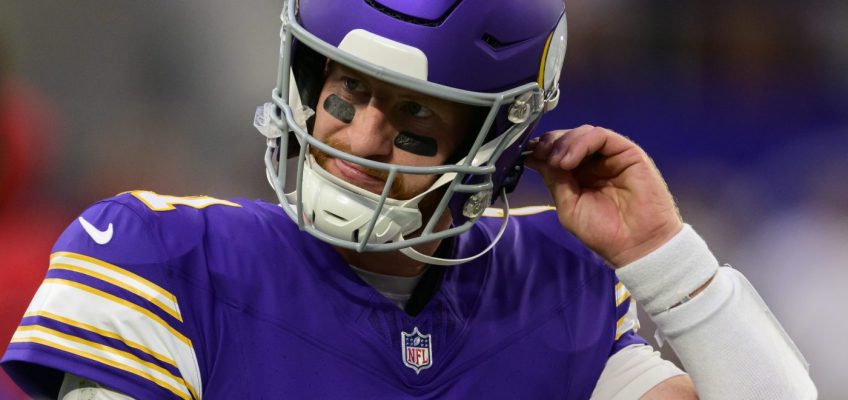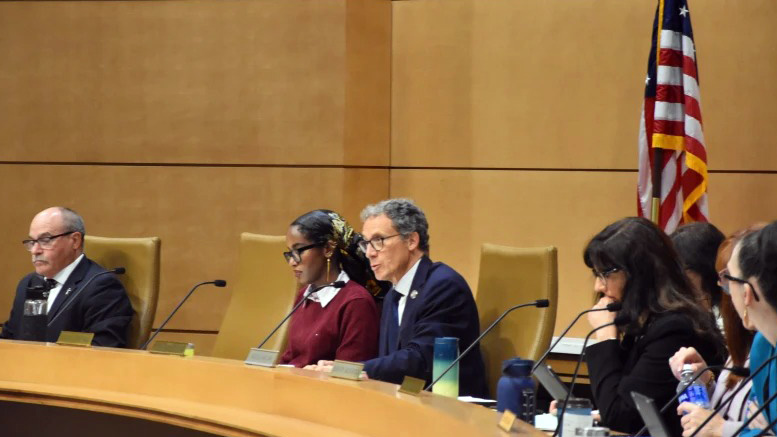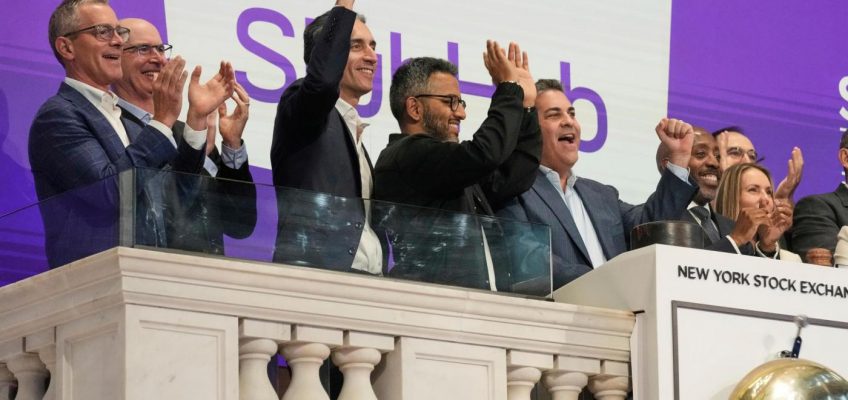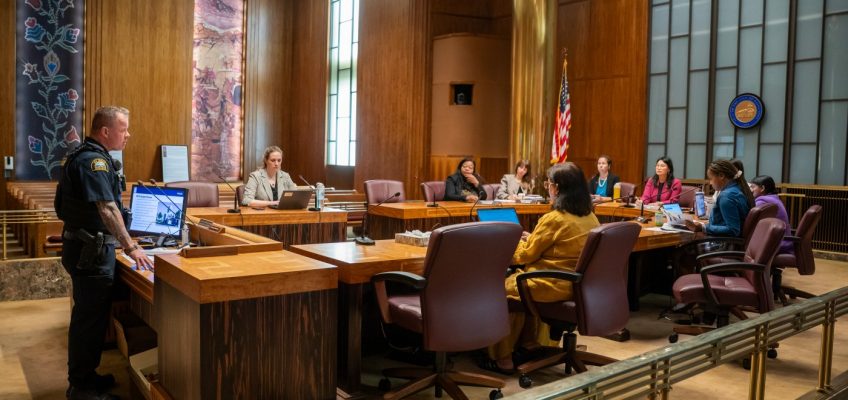To call Carson Wentz a journeyman might not be understating it. The veteran quarterback signed with the Vikings last month having already played for the Philadelphia Eagles, Indianapolis Colts, Washington Commanders, Los Angeles Rams and Kansas City Chiefs.
Carson Wentz #11 of the Minnesota Vikings warms up prior to the game against the Chicago Bears at Soldier Field on Sept. 08, 2025 in Chicago, Illinois. (Photo by Michael Reaves/Getty Images)
Now Wentz, 32, is preparing to make NFL history as the only quarterback to ever start a game for six different teams in six consecutive seasons. He will reach that distinction when he starts for the Vikings against the Cincinnati Bengals on Sunday afternoon at U.S. Bank Stadium.
“It’s definitely given me a different perspective,” Wentz said. “I’ve gone from being a starter to being traded to being cut to being a backup.”
Though his path to this point makes Wentz a cheat code in Immaculate Grid — the online game where players attempt to fill a 3×3 grid with players that fit the criteria for the corresponding rows and columns — it also might make him the perfect person for the Vikings at this moment.
Indianapolis Colts quarterback Carson Wentz (2) rolls to the outside looking for an open receiver during an NFL football game against the New York Jets, Thursday, Nov. 4, 2021, in Indianapolis. (AP Photo/Zach Bolinger)
The vibes surrounding the Vikings already weren’t great after getting manhandled in a 22-6 loss to the Atlanta Falcons. Then news broke that J.J. McCarthy had suffered a high ankle sprain, which is expected to keep the second-year quarterback out for the next few weeks at a minimum.
The amount of experience that Wentz has under his belt has allowed him to hit the ground running as he shifts his mindset from being the backup to being the starter. All those previous stops, he said, have helped him “find ways to learn quick.”
“That,” he added, “has definitely helped in this crash course the past couple of weeks.”
That’s something head coach Kevin O’Connell noticed about Wentz last week when McCarthy missed practice to be at the birth of his son. The fact that Wentz has started 94 games was apparent when everything continued to run smoothly.
“You felt that poise and presence from the walkthrough to the practice,” O’Connell said while noting that he challenged Wentz with a lot of stuff before the snap. “His ability to absorb all that, and then run the show, was apparent to everybody.”
The level of comfort Wentz already has in the offense is a testament to all the extra time he has spent working with quarterbacks coach Josh McCown and assistant quarterbacks coach Jordan Traylor.
“He has been on those guys,” offensive coordinator Wes Phillips said. “He has been very intentional about getting up to speed.”
It helps that Wentz has experience playing in so many different offenses. There are some similarities across the board that have allowed him to grasp certain concepts a little bit quicker than expected.
“You’ve got a guy that’s played a lot of football,” O’Connell said. “You can really tap into a lot of that while also shaping a game plan that he’s comfortable with, so he can go out and have consistent success, because that’s what our whole team needs right now.”
As for Wentz, he’s very much looking forward to the game, admitting that he wasn’t sure that an opportunity like this would ever come again. Though his resume would suggest otherwise, it’s actually been a while since Wentz has played in a meaningful game.
His starts with both the Rams and the Chiefs came after they had locked up playoff spots. There were’t the same consequences Wentz will be faced with when he steps under center for the Vikings.
“You never know when the next chance is going to be in this league,” he said. “It’s not something I want to take lightly or take for granted.”
Briefly
It was another lengthy injury report for the Vikings as McCarthy (ankle), center Ryan Kelly (concussion) and left tackle Justin Skule (concussion) were forced to sit out practice, while edge rusher Jonathan Greenard (oblique), left guard Donovan Jackson (wrist), safety Theo Jackson (hip), linebacker Austin Keys (groin), tight end Josh Oliver (ankle), safety Harrison Smith (illness) and edge rusher Andrew Van Ginkel (concussion) were limited participants.
Related Articles
The Loop Fantasy Football Report Week 3: Burrow’s turf toe pains many
Carson Wentz will lead the Vikings for now. Here’s a look at his most recent NFL starts.
Vikings signing quarterback Desmond Ridder to add depth
J.J. McCarthy expected to miss Vikings-Bengals game with high ankle sprain
Takeaways from the Vikings’ 22-6 loss to the Falcons




